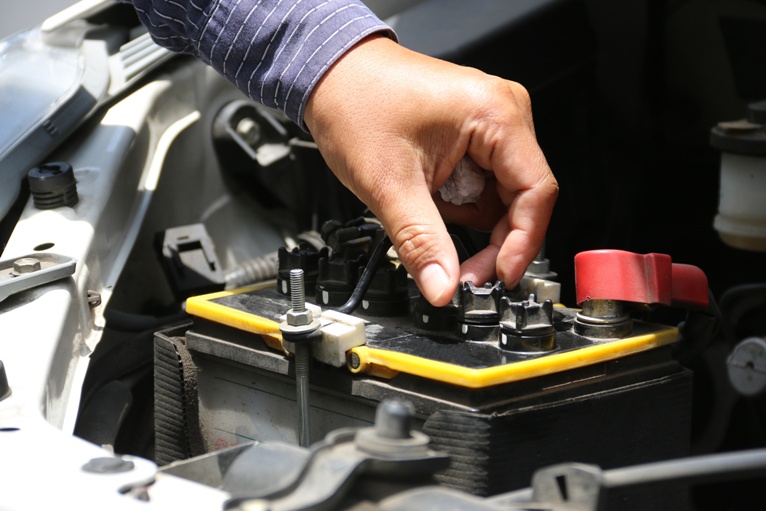The Rise of Battery Industrialization: Transforming the Future of Energy Storage
In recent years, battery technology has rapidly advanced, leading to the industrialization of battery production and storage. This transformation is poised to revolutionize the way we generate, store, and use energy. As the world strives to reduce carbon emissions and transition to renewable energy sources, battery technology is playing a critical role in enabling this transformation.
The industrialization of battery production has led to significant improvements in energy density, charging time, and lifespan. Lithium-ion batteries, which are widely used in portable electronics and electric vehicles, have improved by leaps and bounds over the past decade. The energy density of lithium-ion batteries has increased by about 3-5% per year, while their cost has fallen by more than 80% since 2010. Today, electric vehicles can travel hundreds of miles on a single charge, and their batteries can be charged in a matter of minutes.
The rise of battery industrialization has also led to the development of new battery chemistries and form factors. Solid-state batteries, which use a solid electrolyte instead of a liquid one, promise to offer higher energy density, faster charging times, and improved safety. Researchers are also working on developing new chemistries that use abundant and inexpensive materials, such as sodium, magnesium, and zinc, instead of the costly and scarce materials used in lithium-ion batteries. These new chemistries could significantly reduce the cost of batteries and make them more sustainable.
Another area where battery industrialization is transforming the future of energy storage is in grid-scale applications. Large-scale batteries, also called utility-scale batteries, can store large amounts of energy generated by renewable sources, such as wind and solar, and release it when needed. This can help stabilize the electricity grid and reduce the need for fossil-fuel-fired power plants. For example, Tesla\’s 100-megawatt battery in South Australia has helped stabilize the grid and reduce the frequency and duration of blackouts.
Moreover, the industrialization of battery production has led to the creation of new business models and opportunities. Battery manufacturers are partnering with energy companies and utilities to offer energy storage solutions to customers, such as residential solar-plus-storage systems and community-scale microgrids. These solutions can help customers reduce their energy bills, increase their energy independence, and contribute to the decarbonization of the electricity grid.

However, there are still challenges to be overcome in the industrialization of battery production and storage. One of the biggest challenges is the sustainability of battery materials and manufacturing processes. The mining and extraction of materials such as lithium, cobalt, and nickel can have environmental and social impacts, and the recycling of batteries is still in its early stages. Manufacturers must ensure that their supply chains and processes are environmentally and socially responsible, and that they prioritize the reuse and recycling of batteries.
In conclusion, the rise of battery industrialization is transforming the future of energy storage. It is enabling the transition to renewable energy sources, improving the performance and cost-effectiveness of batteries, and creating new business models and opportunities. However, manufacturers must ensure that they prioritize sustainability and responsibility in their supply chains and manufacturing processes to realize the full potential of battery technology. With the right policies and investments in place, battery technology can play a critical role in building a more sustainable and resilient energy system for the future.
-
 In today's fast-paced and technology-driven world, industries heavily rely on batteries to power their operations. Whether it is forklifts in warehouses, cranes in construction sites, or electric vehicles on the road, industrial batteries play a critical role in ensuring smooth and uninterrupted workflow. However, to unleash the full potential of these batteries, it is crucial to have efficient and powerful...続きを読む
In today's fast-paced and technology-driven world, industries heavily rely on batteries to power their operations. Whether it is forklifts in warehouses, cranes in construction sites, or electric vehicles on the road, industrial batteries play a critical role in ensuring smooth and uninterrupted workflow. However, to unleash the full potential of these batteries, it is crucial to have efficient and powerful...続きを読む -
 As the global population continues to grow, so does the demand for electricity. In today's modern world, it's essential to have a reliable and efficient power grid system. This is where smart grids come into play, revolutionizing the way we generate, distribute, and consume electricity. At the heart of this transformation lies the power of lithium batteries. Lithium batteries...続きを読む
As the global population continues to grow, so does the demand for electricity. In today's modern world, it's essential to have a reliable and efficient power grid system. This is where smart grids come into play, revolutionizing the way we generate, distribute, and consume electricity. At the heart of this transformation lies the power of lithium batteries. Lithium batteries...続きを読む -
 In recent years, lithium ion batteries have become increasingly popular as a source of energy for various applications, from powering electric vehicles to storing solar power for homes. Among the different types of lithium ion batteries, the Lithium Iron Phosphate (LiFePO4) 48V battery stands out for its unique features and advantages. In this article, we will explore what LiFePO4 48V...続きを読む
In recent years, lithium ion batteries have become increasingly popular as a source of energy for various applications, from powering electric vehicles to storing solar power for homes. Among the different types of lithium ion batteries, the Lithium Iron Phosphate (LiFePO4) 48V battery stands out for its unique features and advantages. In this article, we will explore what LiFePO4 48V...続きを読む -
 Low-speed electric vehicles (LSEVs) are compact electric vehicles designed for short-distance travel at relatively low speeds. They are typically used in urban environments, industrial areas, and campuses for transportation purposes. LSEVs are known for their small size, low cost, and eco-friendly operation. Lithium batteries are commonly used in low-speed electric vehicles due to their high energy density, lightweight nature, and...続きを読む
Low-speed electric vehicles (LSEVs) are compact electric vehicles designed for short-distance travel at relatively low speeds. They are typically used in urban environments, industrial areas, and campuses for transportation purposes. LSEVs are known for their small size, low cost, and eco-friendly operation. Lithium batteries are commonly used in low-speed electric vehicles due to their high energy density, lightweight nature, and...続きを読む -
 Introduction: As the global energy demand continues to rise, it has become imperative to explore innovative solutions to meet this growing need sustainably. The integration of smart grids with lithium batteries presents a promising avenue for revolutionizing energy management. This article delves into the potential benefits, challenges, and future prospects of this integration. 1. Benefits of integrating smart grids...続きを読む
Introduction: As the global energy demand continues to rise, it has become imperative to explore innovative solutions to meet this growing need sustainably. The integration of smart grids with lithium batteries presents a promising avenue for revolutionizing energy management. This article delves into the potential benefits, challenges, and future prospects of this integration. 1. Benefits of integrating smart grids...続きを読む -
 リン酸鉄リチウム (LiFePO4) 電池のコストは、この技術に興味がある人にとって重要なトピックです。ほとんどのクリーンテック ソリューションと同様に、これらのバッテリーが入手できる価格は、市場規模とさまざまな用途でのテクノロジーの使用の実現可能性を決定する重要な要素です。この記事では、LiFePO4 バッテリーの平均価格と...続きを読む
リン酸鉄リチウム (LiFePO4) 電池のコストは、この技術に興味がある人にとって重要なトピックです。ほとんどのクリーンテック ソリューションと同様に、これらのバッテリーが入手できる価格は、市場規模とさまざまな用途でのテクノロジーの使用の実現可能性を決定する重要な要素です。この記事では、LiFePO4 バッテリーの平均価格と...続きを読む -
 Introduction: The starter battery is an essential component of any vehicle. It powers the starter motor, which is responsible for turning over the engine. Without a functioning battery, your vehicle won\'t start. Over time, batteries can lose their charge or become damaged, which can lead to failure. That's why it's important to keep track of your battery's age and replace...続きを読む
Introduction: The starter battery is an essential component of any vehicle. It powers the starter motor, which is responsible for turning over the engine. Without a functioning battery, your vehicle won\'t start. Over time, batteries can lose their charge or become damaged, which can lead to failure. That's why it's important to keep track of your battery's age and replace...続きを読む

